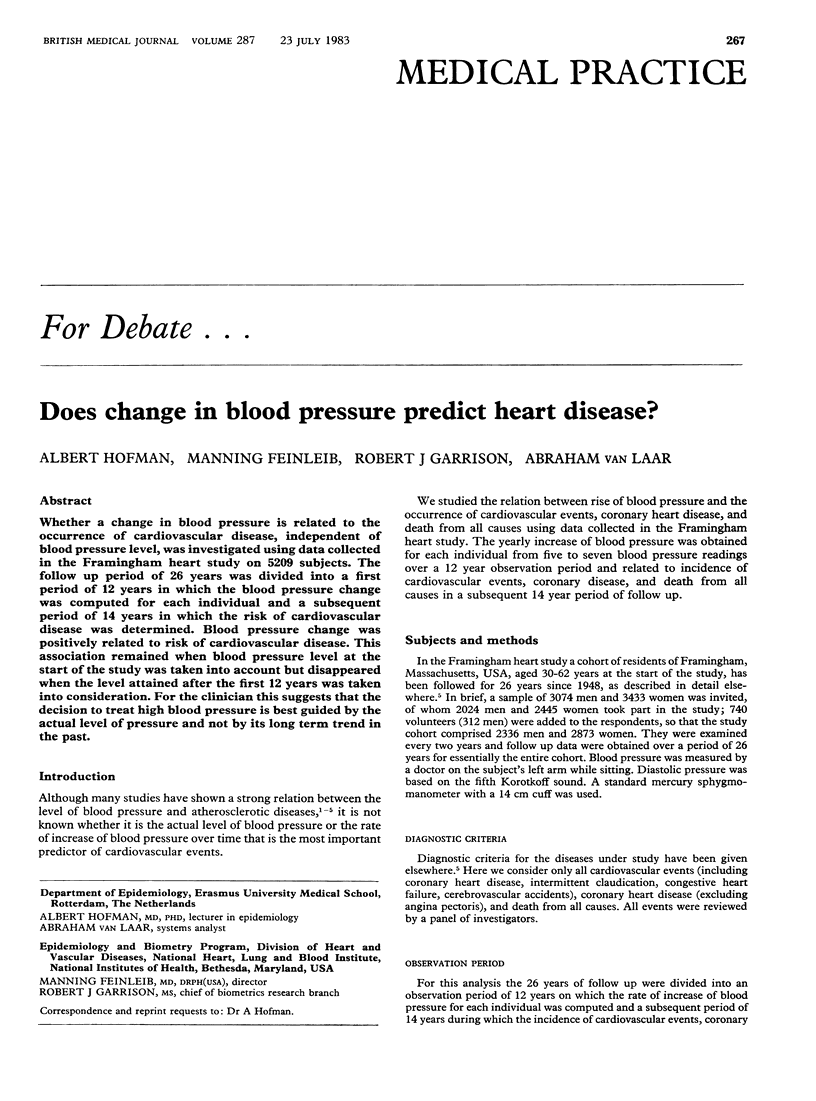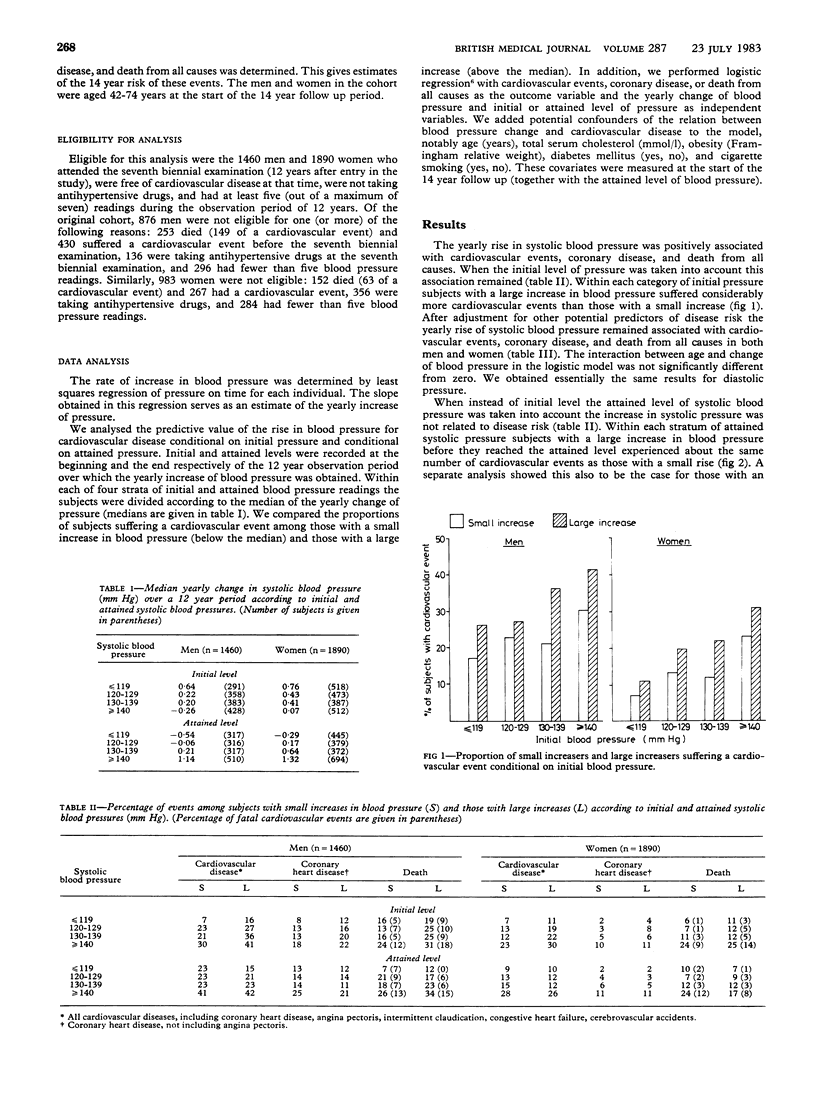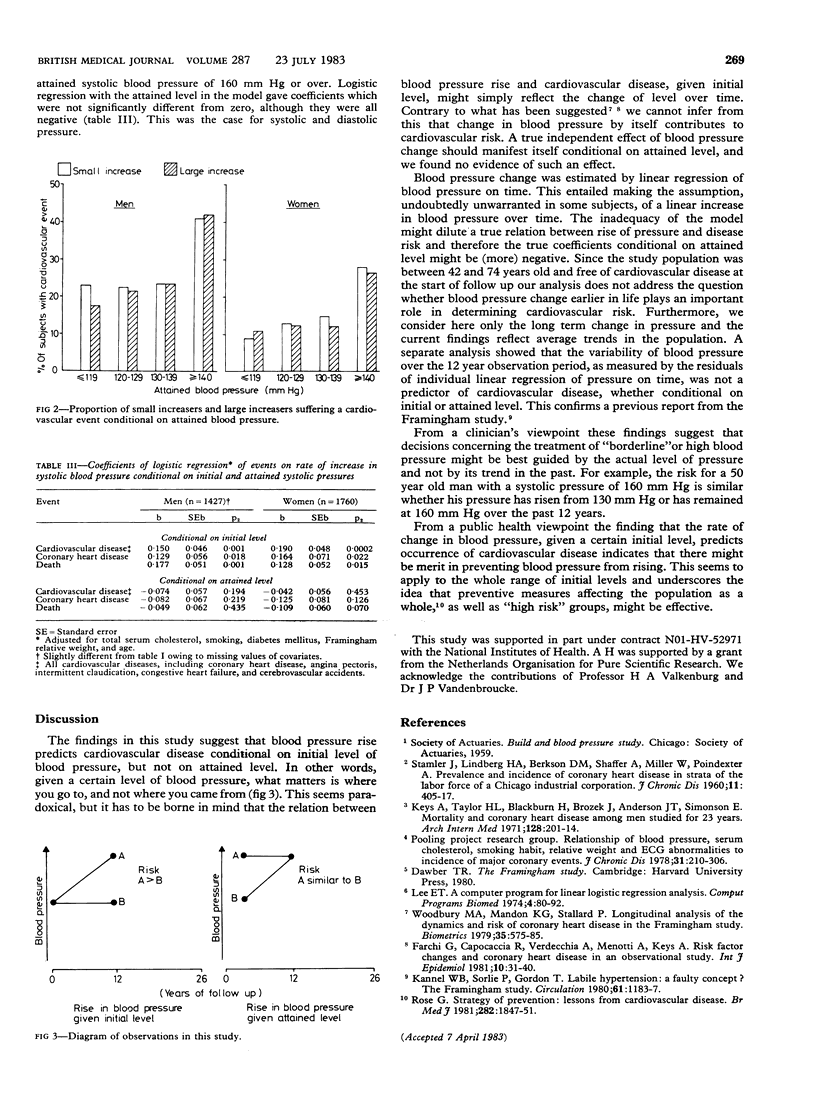Abstract
Whether a change in blood pressure is related to the occurrence of cardiovascular disease, independent of blood pressure level, was investigated using data collected in the Framingham heart study on 5209 subjects. The follow up period of 26 years was divided into a first period of 12 years in which the blood pressure change was computed for each individual and a subsequent period of 14 years in which the risk of cardiovascular disease was determined. Blood pressure change was positively related to risk of cardiovascular disease. This association remained when blood pressure level at the start of the study was taken into account but disappeared when the level attained after the first 12 years was taken into consideration. For the clinician this suggests that the decision to treat high blood pressure is best guided by the actual level of pressure and not by its long term trend in the past.
Full text
PDF


Selected References
These references are in PubMed. This may not be the complete list of references from this article.
- Farchi G., Capocaccia R., Verdecchia A., Menotti A., Keys A. Risk factors changes and coronary heart disease in an observational study. Int J Epidemiol. 1981 Mar;10(1):31–40. doi: 10.1093/ije/10.1.31. [DOI] [PubMed] [Google Scholar]
- Kannel W. B., Sorlie P., Gordon T. Labile hypertension: a faulty concept? The Framingham study. Circulation. 1980 Jun;61(6):1183–1187. doi: 10.1161/01.cir.61.6.1183. [DOI] [PubMed] [Google Scholar]
- Keys A., Taylor H. L., Blackburn H., Brozek J., Anderson J. T., Simonson E. Mortality and coronary heart disease among men studied for 23 years. Arch Intern Med. 1971 Aug;128(2):201–214. doi: 10.1001/archinte.1971.00310200037002. [DOI] [PubMed] [Google Scholar]
- Lee E. T. A computer program for linear logistic regression analysis. Comput Programs Biomed. 1974 Oct;4(2):80–92. doi: 10.1016/0010-468x(74)90011-7. [DOI] [PubMed] [Google Scholar]
- Rose G. Strategy of prevention: lessons from cardiovascular disease. Br Med J (Clin Res Ed) 1981 Jun 6;282(6279):1847–1851. doi: 10.1136/bmj.282.6279.1847. [DOI] [PMC free article] [PubMed] [Google Scholar]
- STAMLER J., LINDBERG H. A., BERKSON D. M., SHAFFER A., MILLER W., POINDEXTER A. Prevalence and incidence of coronary heart disease in strata of the labor force of a Chicago industrial corporation. J Chronic Dis. 1960 Apr;11:405–420. doi: 10.1016/0021-9681(60)90046-1. [DOI] [PubMed] [Google Scholar]
- Woodbury M. A., Manton K. G., Stallard E. Longitudinal analysis of the dynamics and risk of coronary heart disease in the Framingham Study. Biometrics. 1979 Sep;35(3):575–585. [PubMed] [Google Scholar]



